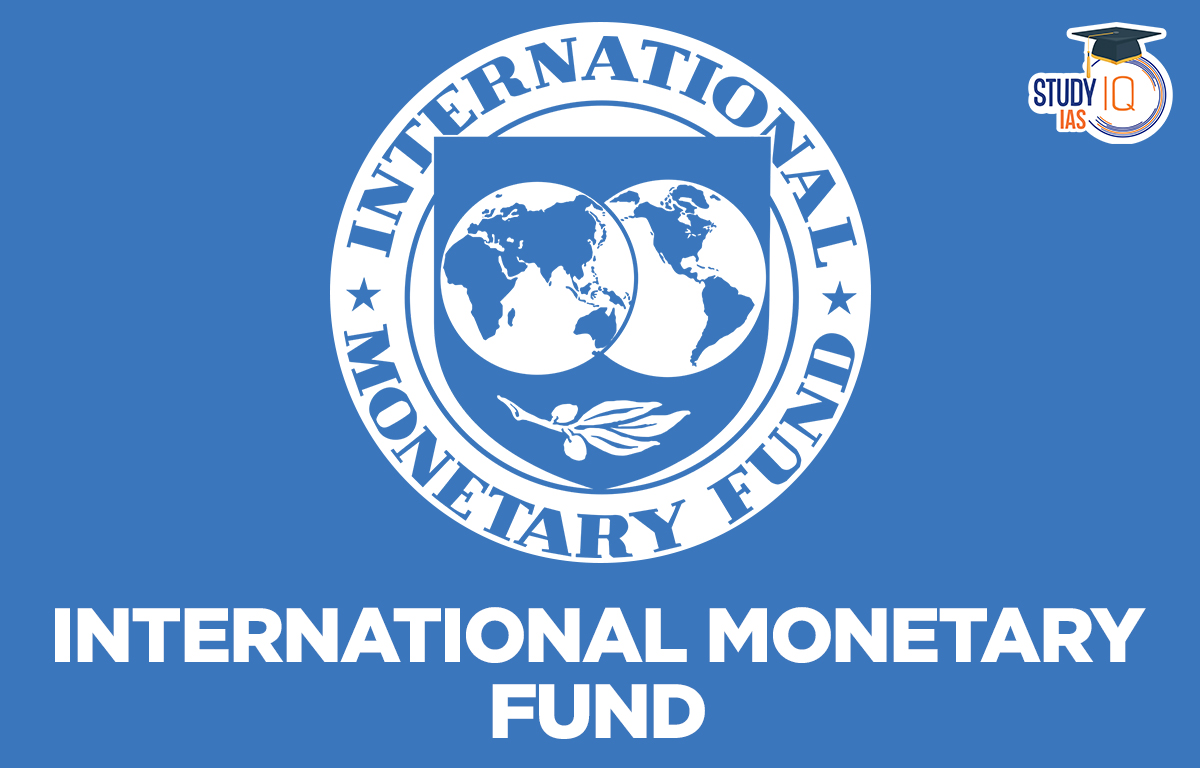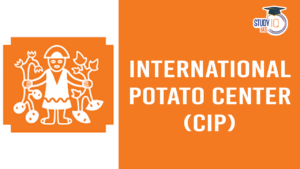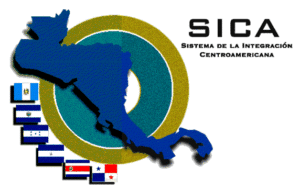Table of Contents
International Monetary Fund (IMF)
- It is a specialised agency of the United Nations (UN), founded at the Bretton Woods Conference in 1944. (HQ- Washington DC)
- Membership: 190 countries.
- It grants loans only to its member countries.
- Reports released by IMF:
- World Economic Outlook (WEO): A biannual report analysing global economic trends and forecasts.
- Global Financial Stability Report (GFSR): Focuses on global financial markets and assesses risks to financial stability.
- Lending facilities of IMF: Extended Fund Facility, Rapid Financing Instrument, Rapid Credit facility.
Structure of the IMF
- Board of Governors: Highest decision-making body of the IMF. Each member country is represented by its Finance Minister or Central Bank Governor. They meet annually to review key policies and global economic challenges.
- Executive Board: Composed of 24 Executive Directors, this board is responsible for the day-to-day operations of the IMF.
- Managing Director: The Managing Director is the head of the IMF and its staff.
Quota System in IMF
- The IMF operates on a quota system, which reflects each member’s relative position in the global economy. A member’s quota is determined by its GDP, trade openness and other factors.
- Quotas determine the financial contribution of each member country, voting power, and access to IMF resources. Quotas are denominated in Special Drawing Rights (SDRs), the IMF’s unit of account.
- A country’s voting power is directly related to its quota; the higher the quota, the more voting power the country has. The U.S. has the largest quota and voting share, followed by Japan, China and Germany.
- India has 75% of the total quota, making it the 8th largest quota-holding country.
This article provides you with complete information regarding the International Monetary Fund that’s required to prepare for the UPSC Syllabus.
IMF Headquarters
The International Monetary Fund (IMF) is headquartered in Washington, D.C., the capital of the United States of America. The IMF headquarters complex is divided into two parts: the main building and the temporary building. The main structure, which was finished in 1998, has 12 stories and 1.1 million square feet of floor space. The temporary building was erected in 2017 to give additional office space while the main building was being renovated.
The Managing Director’s office, senior staff members, and other professionals who work for the IMF are all housed at the IMF headquarters. It also features meeting rooms, a canteen, a library, and other facilities to help the IMF’s operations.
International Monetary Fund History
The International Monetary Fund (IMF) was established in July 1944 at the Bretton Woods Conference in New Hampshire, United States. The conference was attended by representatives of 44 nations, including the United States, the United Kingdom, and France. The purpose of the conference was to create a new system of international economic cooperation that would prevent another global economic depression like the one that occurred in the 1930s.
The IMF was established to encourage global monetary cooperation, stable exchange rates, and efficient exchange policies.Its primary purpose was to provide short-term loans to member countries experiencing balance of payments difficulties. The IMF was also tasked with monitoring the international monetary system and providing technical assistance to member countries to help them manage their economies.
The IMF began operations in March 1947, and its first loan was made to France in May of that year. In the years that followed, the IMF provided loans to many other countries, including the United Kingdom, Italy, and Greece. The IMF also played a key role in the post-war reconstruction of Europe, providing assistance to countries that were devastated by the war.
During the 1960s and 1970s, the IMF continued to provide financial assistance to member countries, but it also began to focus on promoting economic growth and development. The IMF introduced programs designed to encourage economic reform and stabilization in developing countries, and it worked with other international organizations to provide technical assistance and training to help these countries build strong and sustainable economies.
In the 1980s, the IMF played a major role in helping countries that were experiencing debt crises, particularly in Latin America. The organization worked with these countries to implement economic reforms and debt restructuring programs to help them regain their financial footing.
In recent years, the IMF has continued to provide financial assistance and technical support to member countries, particularly those facing economic crises. It has also played a role in promoting international economic cooperation and stability, particularly in the wake of the global financial crisis of 2008-2009. Today, the IMF has 190 member countries, and its headquarters are in Washington, D.C.
International Monetary Fund Objectives
The International Monetary Fund (IMF) has several objectives, which include:
- Encouraging International Monetary Cooperation: The IMF seeks to encourage cooperation among its member countries in order to maintain the international monetary system’s stability.
- Enabling International Trade and Investment: The IMF strives to facilitate international trade and investment by giving resources to member nations to support their balance of payments and encourage economic growth.
- Encouraging Economic Growth and Sustainable Development: The IMF seeks to encourage economic growth and development in member countries while simultaneously promoting long-term economic policy.
- Poverty Reduction: The IMF seeks to alleviate poverty by promoting economic policies that encourage inclusive growth, job development, and social safety nets.
- Financial Support: The IMF provides financial assistance to member nations experiencing economic challenges in order to restore economic stability and promote sustainable growth.
Functions of IMF
The International Monetary Fund (IMF) has several functions, including:
- Encouraging International Monetary Cooperation: The IMF aspires to promote international monetary stability and reduce the risks of economic and financial crises by facilitating collaboration among its member countries.
- Providing Financial Assistance: Financial Assistance is provided by the IMF to member nations experiencing balance-of-payments issues or other economic concerns. Financial aid can take the shape of loans or other financial instruments, and it is usually conditional on meeting particular criteria aimed at improving the country’s economic status.
- Surveillance: The IMF monitors economic and financial developments in member nations and offers policy recommendations to support economic stability and growth.
- Technical support: To help its members develop their capacities in areas including fiscal policy, monetary policy, and financial regulation, the IMF offers technical support and training.
- Research: The IMF publishes studies and publications on a variety of economic and financial concerns, including the world economy, financial stability, and poverty alleviation.
IMF and World Bank
The International Monetary Fund (IMF) and the World Bank are two prominent international organisations founded in 1944 as part of the Bretton Woods Agreement. While both organisations have the goal of encouraging international economic cooperation and alleviating poverty around the world, their missions and functions are distinct.
The primary role of the IMF is to promote international monetary cooperation and to give financial assistance to member nations experiencing economic problems. The IMF’s financial support is typically in the form of loans, and it is meant to assist nations in addressing balance-of-payments issues and promoting economic stability. The IMF also monitors member countries’ economic policies and offers technical assistance and training to assist countries in improving their economic management.
The World Bank, on the other hand, is primarily concerned with alleviating poverty and supporting long-term development. The World Bank offers developing countries with financial aid and loans to support projects in infrastructure, health, education, and environmental sustainability. The World Bank also gives technical assistance and advice to nations in order to help them improve capacity in these areas.
While the IMF and World Bank have distinct powers and activities, they frequently collaborate on collaborative projects and initiatives to promote international economic cooperation and alleviate global poverty. To achieve their objectives, they also work with other international organisations, such as the United Nations.
Pakistan and IMF
In order to address its economic problems, Pakistan has a long history of working with the International Monetary Fund (IMF). Over the years, Pakistan has received a number of IMF loans and financial assistance packages, frequently as a result of balance of payments issues and macroeconomic imbalances.
Pakistan and the IMF signed a $6 billion Extended Fund Facility (EFF) agreement in July 2019 to address the macroeconomic issues the nation is facing, such as a sizable fiscal deficit, scant foreign exchange reserves, and rising inflation. Pakistan pledged to implement a number of policy measures as part of the programme, including fiscal consolidation, monetary policy tightening, and structural changes in industries like tax administration, energy, and finance.
Although there are still certain obstacles to overcome, particularly those related to the COVID-19 pandemic and its effects on the economy, the IMF has applauded Pakistan for its efforts in putting the changes under the EFF programme into practice. The IMF has highlighted that Pakistan must keep up its reforms in order to achieve inclusive and sustainable growth, resolve governance challenges, and enhance the business climate.
Overall, the IMF has been a valuable partner in resolving Pakistan’s economic issues and fostering long-term prosperity. Nonetheless, the IMF’s engagement in the Pakistani economy has been contentious, with some critics claiming that the IMF’s policy measures have had significant social and economic implications, particularly for the impoverished and disadvantaged elements of society.
International Monetary Fund UPSC
The International Monetary Fund (IMF) is a topic that might be covered in the Union Public Service Commission (UPSC) examination curriculum. Applicants may be asked to assess the efficacy of the IMF in attaining its goals as well as the effects of IMF policies and programmes on the economies of member nations. Students can go for the UPSC Mock Test to enhance their preparations for their upcoming IAS Prelims examination.
For more details related to the UPSC Examination; students can visit the official website of StudyIQ UPSC Online Coaching. Aspirants can improve their question-solving skills by solving mock on a weekly basis. Mocks help to score well in the exam.
| UPSC PYQ |
| Q. ‘’Rapid Financing Instrument’’ and ‘’Rapid Credit Facility’’ are related to the provisions of lending by which one of the following? (2022)
(a) Asian Development Bank (b) International Monetary Fund (c) United Nations Environment Programme Finance Initiative (d) World Bank Answer: B |
| Related Articles | |
| BRICS Countries | G7 Countries |
| BIMSTEC Countries | NATO Countries |


 International Potato Center (CIP) in Agr...
International Potato Center (CIP) in Agr...
 Central American Integration System (SIC...
Central American Integration System (SIC...
 World Trade Organisation (WTO), History,...
World Trade Organisation (WTO), History,...





















